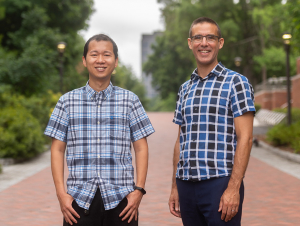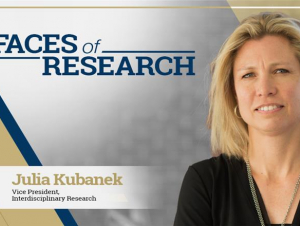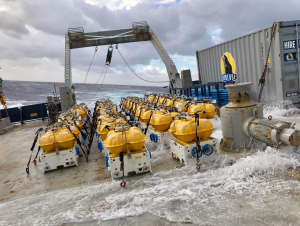To request a media interview, please reach out to experts using the faculty directories for each of our six schools, or contact Jess Hunt-Ralston, College of Sciences communications director. A list of faculty experts is also available to journalists upon request.
Latest News
Elwood P. "Doc" Blanchard, a School of Chemistry and Biochemistry alumnus who established a fellowship for early-career faculty members in the school, has died at the age of 90. Blanchard received his B.S. and M.S. from Georgia Tech in the 1950s and would rise to the top levels at DuPont at the time it was becoming the world's largest chemical company.
Leavey, named assistant dean for Faculty Mentoring in the College, is a principal academic professional in the School of Biological Sciences, director of the Georgia Tech Urban Honey Bee Project, and coordinator of science and sustainability educational activities for the College. Shepler, who joins the Dean’s Office as assistant dean for Teaching Effectiveness, also serves as principal academic professional in the School of Chemistry and Biochemistry, focusing primarily on undergraduate program initiatives.
The NIH-funded program is designed to train a new generation of biomedical researchers and thought leaders to harness the data revolution.
Cadonati, a professor in the School of Physics and director of the Center for Relativistic Astrophysics, has also held leadership positions in LIGO — including leading its data analysis and astrophysics division at the time of the discovery of gravitational waves, which led to the 2017 Nobel prize in Physics to the founders of the project.
Tectonic plates colliding deep below the ocean's surface can trigger major earthquakes and tsunamis. Now, a new study from a collaborative team of scientists including Samer Naif, assistant professor in the School of Earth and Atmospheric Sciences, shows that water may play a bigger role than previously understood in the magnitude of these underwater quakes.








